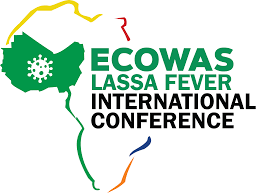By Kemo Cham
The Prime Minister of Côte d’Ivoire, Robert Beugré Mambé is scheduled to open the Second Lassa fever International Conference which starts in Abidjan on Monday, September 8, 2025.
Leading scientists, researchers, public health advocates, policymakers, and health practitioners from across the globe will converge in the Ivorian capital for what is the foremost international forum dedicated to tackling Lassa fever, one of West Africa’s most persistent public health challenges.
Organizedbythe West African Health Organisation (WAHO), in collaboration with regional and international partners, the conference provides a platform for sharing the latest scientific advances, innovative control strategies and collaborative approaches for the prevention, diagnosis and treatment of Lassa fever – a viral haemorrhagic fever endemic in parts of the sub region, and which is associated with high morbidity and mortality.
ELFIC2025 is being held under the theme “Beyond Borders: Strengthening Regional Cooperation to combat Lassa and emerging Infectious Diseases”, and it willfeature keynote addresses, high-level panels and technical workshops that will cover areas like advances in vaccine and diagnostic development, community engagement and preparedness strategies, and surveillance, outbreak response and cross-border collaboration. The discussions will also touch on policy frameworks for sustainable control and elimination of the viral disease.
The conference will also feature a high-level ministerial roundtable discussion co-convened by the Director General of WAHO, Dr. Melchior Athanase AÏSSI, the Minister of Health and Social Welfare of Nigeria, Professor Muhammad Ali Pate, and the Minister for Health, Public Hygiene and Universal Health Coverage in Côte d’Ivoire M. Pierre N’Gou Dimba.
WAHO said in a statement shared with the media ahead of the event that Lassa fever remains a serious public health threat, noting that one in 5 infections result in severe disease, and that the virus affects several organs, such as the liver, spleen and kidneys.
“Beyond its health impact, the lack of a vaccine and the absence of an approved antiviral drug for Lassa fever drive serious socio-economic consequences, particularly for rural and underserved communities,” the statement notes. “ELFIC 2025 will foster dialogue between scientists, policymakers and communities to ensure that research outcomes are translated into tangible action.
WAHO Director General, Dr Melchior Athanase J. C. Aïssi, is quoted in the statement saying that the conference offers a platform to discuss not just Lassa fever but zoonotic diseases in general.
“This conference is a call to action to confront the persistent challenges associated with Lassa fever by advancing research, diagnostics, and community-led solutions, while enhancing preparedness and response strategies against zoonotic diseases,” he said.
The four-day event is also planned to include exhibitions, showcasing innovations from research institutions, NGOs and private sector partners, as well as networking sessions aimed at strengthening regional and international collaboration. WAHO member countries will be represented by Ministries of Health, while strategic partners such as the World Health Organization (WHO), the World Bank, African Development Bank (AFDB), the Coalition for Epidemic Preparedness Innovations (CEPI), KfW, along with other international stakeholders committed to epidemic preparedness and response will also be represented.






















